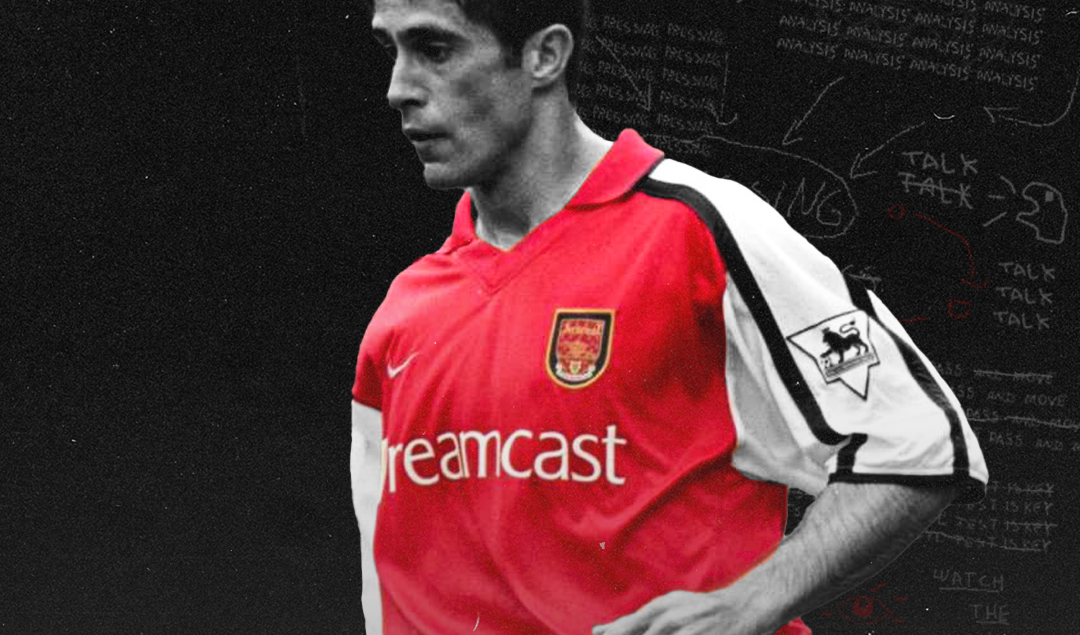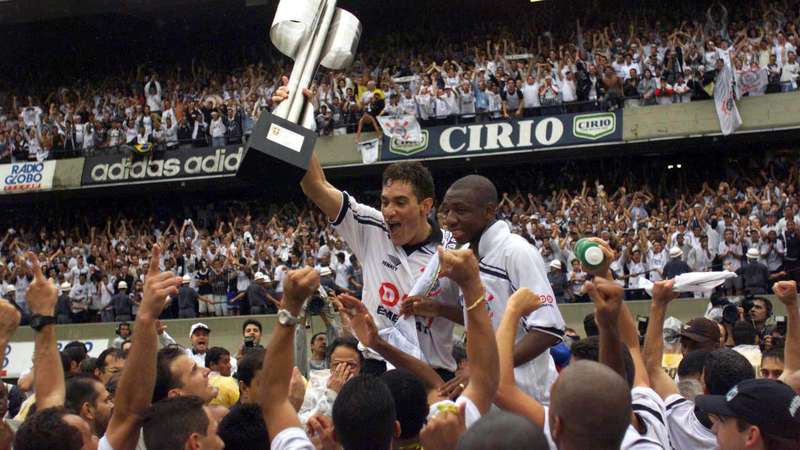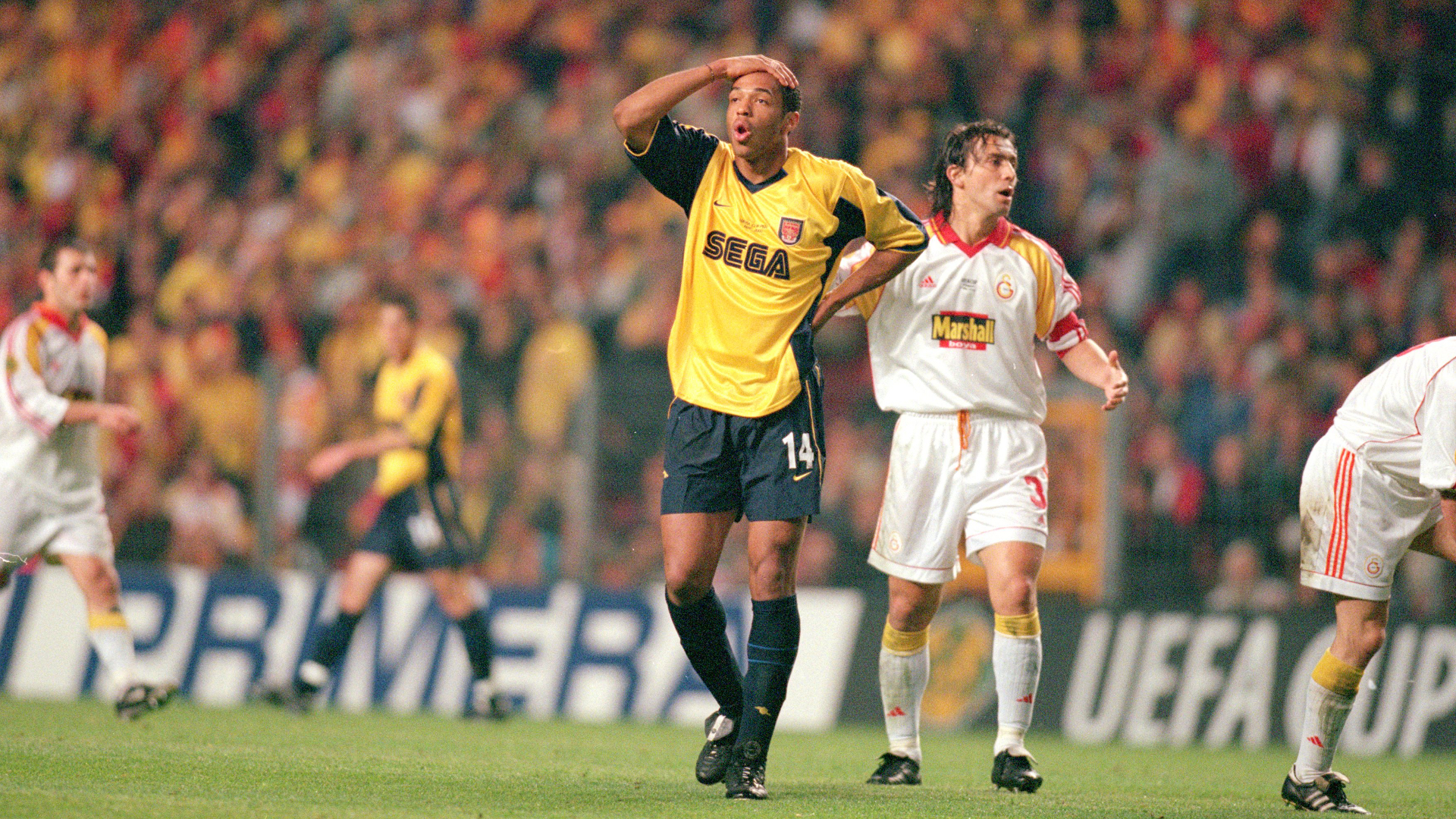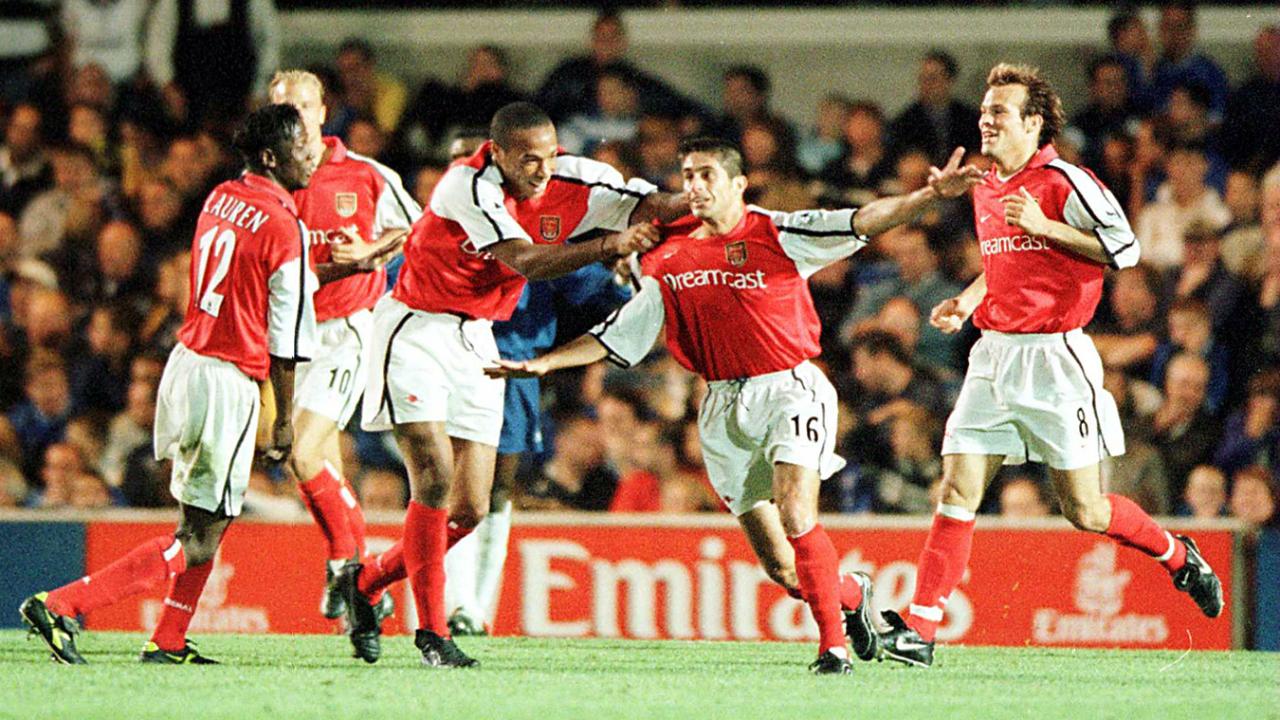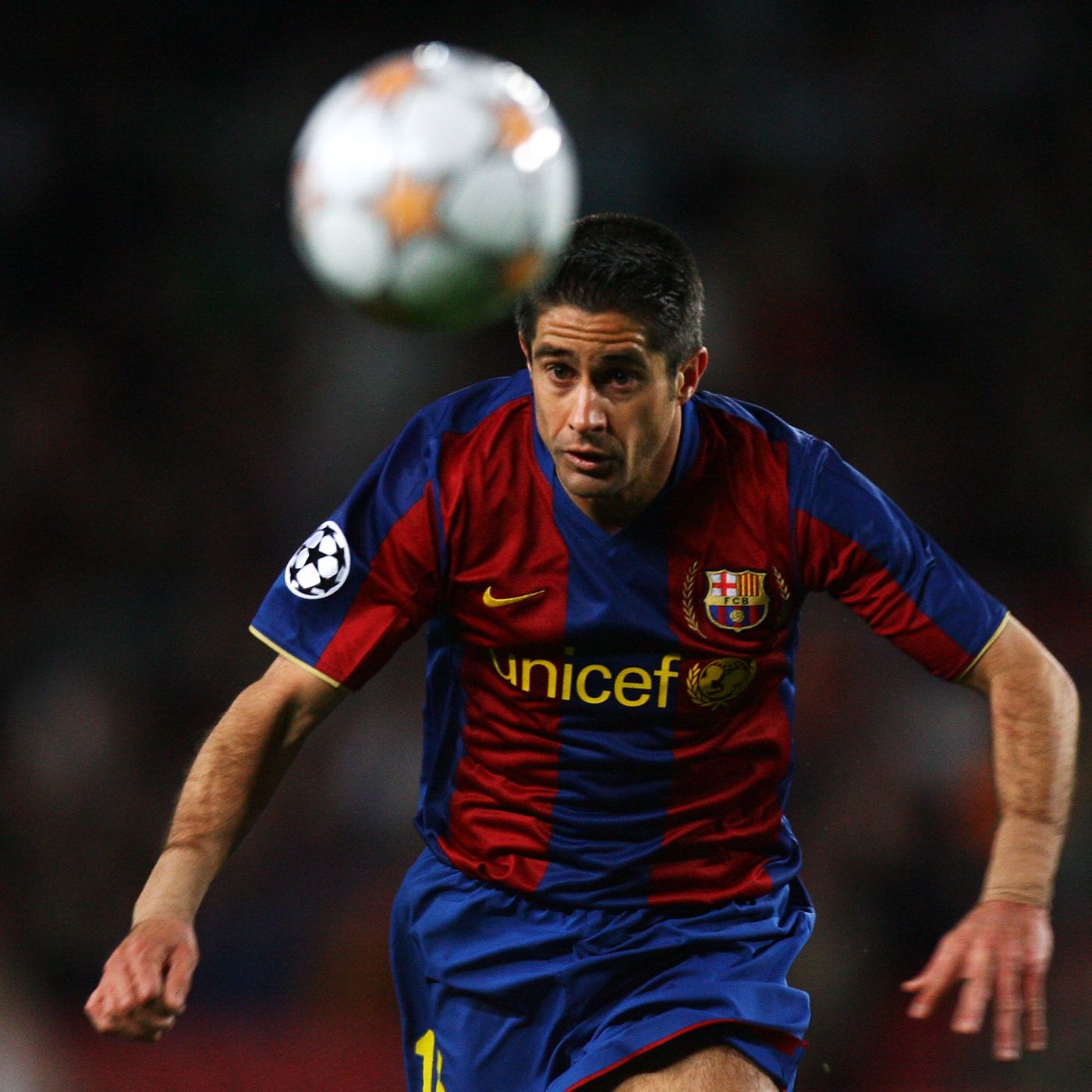Sylvinho: The First Brazilian Gunner
In the last year, Arsenal’s Brazilian contingent has grown quite considerably with the arrival of Gabriel Martinelli, David Luiz, along with the recent acquisition of Willian on a free transfer from Chelsea. They look set to add to their tally with the signing of Lille’s Gabriel Magalhães, who looks set to join the Gunners for a fee of £25 million in the coming days.
It adds to the list of several Brazilians who have played for the Gunners ranging from Edu, Gilberto Silva, Júlio Baptista, Gabriel Paulista and André Santos. But the first Brazilian to make the move to North London was a then 25-year-old named Sylvio Mendes Campos Júnior – better known as Sylvinho.
Born in São Paulo, the left back played for his hometown club Corinthians, getting his first break by reaching the first team in 1994. Becoming a first team regular, it was his performances that contributed to Corinthians winning the Brasileirão in 1998 (plus a few state championships) that soon got the attention of Europe’s clubs, most notably in England.
Photo: Paulo Pinto / Estadão
Arsenal would win the race for Sylvinho in June 1999, then manager Arsène Wenger eager to improve the squad after finishing behind Manchester United’s treble winning side of 1998-99.
Brazilian signings in the Premier League during the 1990s were treated with excitement, mainly as there had been so few, yet fans in England saw the buzz generated by the arrival of Branco, Emerson and then Juninho at Middlesbrough. Alas, with Sylvinho being the Gunners’ first ever Brazilian player, there was a sense of intrigue at what he could do at Highbury.
The left back quickly showcased his attributes honed at Corinthians while playing in the Brasileirão and Copa Libertadores. His searing pace helped provide Marc Overmars with two-on-one situations against the opposing full back on the left flank. It did not take Sylvinho long to dislodge veteran and first choice left back Nigel Winterburn from the starting eleven.
Soon enough, Sylvinho’s performances allowed him to hold down the spot throughout the 1999-2000 season. Convincing Wenger to make him the permanent first choice left back resulted in the long serving Winterburn to be sold to West Ham in June 2000. Sylvinho would make 46 appearances that season in the league, domestic cup and in Europe.
There were high moments for the Brazilian in his debut season at Arsenal, such as his assist for Thierry Henry to salvage a point against Wimbledon in the league in December 1999, assisting Henry again in May 2000 to score in the UEFA Cup semi final against RC Lens and then brilliantly scoring against Sheffield Wednesday in the same month to spark a comeback from 3-1 down to 3-3.
However, Sylvinho did face setbacks like missing his spot kick in a penalty shootout against Middlesbrough in October that led to being knocked out of the League Cup. Furthermore, he faced heartbreak when starting in the UEFA Cup final to Galatasaray, losing to them on penalties yet didn’t take a spot kick.
Photo: Phil Cole / Getty Images
Nevertheless, his productive first season at Arsenal would be rewarded by then Brazil manager Vanderlei Luxemburgo giving him his international debut in May 2000 against Wales.
Normally, a player that enjoyed such a good debut season can face the scourge of second season syndrome. However, that didn’t seem to be the case for Sylvinho in the first month of the 2000-01 season. He would score an impressive individual effort against Charlton in late August to seal a 5-3 win, but it would be the following league game at Chelsea on the 6th September that was his crowning point.
Arsenal were 2-0 down with 15 minutes remaining thanks to the goals of Jimmy-Floyd Hasselbaink and Gianfranco Zola. Sylvinho would first lay his marker in the game on 75 minutes when his chipped pass from the left to Dennis Bergkamp was chested back into his path by the Dutchman.
Instinctively, the Brazilian played a through ball to Henry that broke Chelsea’s offside trap and the striker effortlessly slotted the ball past Carlo Cudicini into the far corner.
With four minutes remaining, Sylvinho went from provider to thunderous goalscorer. Chelsea centre back Frank Leboeuf was quick to tackle Arsenal’s Nwanko Kanu just outside the 18 yard box. As the ball rolled to Sylvinho just to the left of the area, the left back struck it powerfully with his left foot and the ball swerved past Cudicini at the near post.
Two points dropped for Chelsea, it was a memorable goal that is still played on Arsenal’s social media outlets whenever the Gunners play Chelsea.
Photo: Premier League
Sylvinho would then follow such heroics a week later by scoring the winning goal at Sparta Prague in the Champions League. It looked as if he could push on forward as a player at Arsenal. That was until injury ruled him out against Bradford City in the league on the 30th January. His replacement would be a young 21-year-old named Ashley Cole.
The young left back was one of the stars of the academy and had come back from a six month loan spell at Crystal Palace the previous season. He had proven his talents by scoring in the 1-1 draw at Bradford in the reverse league fixture in September and 5-0 thrashing of Manchester City in late October.
Cole would deputise wonderfully in the league and Champions League games in Sylvinho’s absence. So much so when the Brazilian returned to fitness, Wenger kept Cole in the starting line up. His assured performances against Bayern Munich and Lyon in early 2001 led to Cole’s call up to the England national team and made his international debut against Albania in March.
Paradoxically, despite Cole starting most of the league games at the latter part of the season, Sylvinho’s talents was recognised enough to be put in the PFA Team Of The Season. Despite such a honour, the Brazilian found himself surplus to requirements, as he was sold to Celta Vigo that summer. Wenger would explain why he sold the popular and well regarded left back:
“We only sold him because we had Ashley Cole and at some stage we had to make a choice. It was difficult, but we are an English club and Ashley was an English international. However, both players were outstanding at the time in my opinion.”
Sylvinho’s career path after leaving the Gunners reflected Wenger’s words. His three years at Celta Vigo was a success, which culminated in helping Celta to finish fourth in the 2002-03 La Liga season and qualify for the Champions League. As a result, it got the attention of Barcelona, moving to the Catalans in July 2004 after Celta were relegated from the top flight.
Sylvinho would win multiple trophies during his five year stay – three La Liga titles, one Copa del Rey, two Spanish Super Cups and two Champions League winners’ medals – the first Champions League win ironically won against Arsenal.
Photo: Ryan Pierse/Getty Images
He would then return to England to play for Manchester City in summer 2009 and then leave at the end of the 2009-10 season. Retiring a year later at the age of 37 in July 2011, he went into coaching as an assistant manager for Cruzeiro, Inter Milan and the Brazilian national team. However, his first managerial job at Lyon last season would be ill-fated, only lasting just five months.
Despite staying two years at Arsenal, Sylvinho would have fond memories of his time in North London and especially of Wenger:
“But when I talk about Arsenal, it’s always something special for me. It’s a kind of homecoming. It’s a good feeling. Arsène Wenger is a high class coach. He was like that for 22 years at Arsenal. That kind of thing doesn’t exist anymore, it’s too difficult. We can say that he’s of a different breed of coaches. I learned a lot from him. He’s a gentleman. He’s a great man.”
Sylvinho becoming the first Brazilian to play at Arsenal helped paved the way for several of his countrymen to wear the red and white – helping to create numerous fond memories. Arsenal fans will hope the recent signings of Willian and Gabriel Magalhães will create new memories for the Gunners.
By: Yousef Teclab
Featured Image: @GabFoligno / Mike Hewitt / Getty Images
